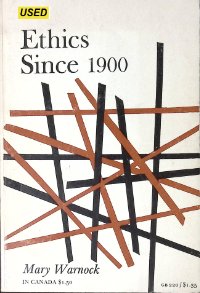BY FRIEDRICH NIETZSCHE. TRANSLATED BY WALTER KAUFMANN and R. J. HOLLINGDALE
On the Genealogy of Morals--Ecce Homo by Friedrich Nietzsche, translated by Walter Kaufmann and R. J. Hollingdale, delves into Nietzsche's exploration of the origin and development of moral values in society. In this profound work, Nietzsche challenges traditional beliefs about good and evil, shedding light on the complex interplay between power, culture, and morality. With incisive analysis and provocative insights, Nietzsche's timeless examination offers readers a thought-provoking journey into the fundamental nature of ethics and human behavior. This translation, skillfully rendered by Kaufmann and Hollingdale, captures the essence of Nietzsche's visionary ideas, making this philosophical masterpiece accessible to contemporary audiences seeking to unravel the mysteries of morality and existence.
A Division of Random House. VINTAGE BOOKS. NEW YORK. 1967. 374p.





















